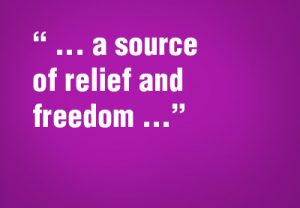 Several years ago, a friend urgently needed to extricate herself from an abusive relationship. She knew that her spouse would use the legal system to further humiliate and abuse her. He potentially had the power to take their children from her. The fear of what could happen in a courtroom kept her in the relationship much longer than was healthy for her or her children.
Several years ago, a friend urgently needed to extricate herself from an abusive relationship. She knew that her spouse would use the legal system to further humiliate and abuse her. He potentially had the power to take their children from her. The fear of what could happen in a courtroom kept her in the relationship much longer than was healthy for her or her children.
From her experience I learned much about the limits of our American legal system in domestic abuse situations where there is, by definition, a pre-existing power inequity within the relationship. When these two people enter the courtroom, the system itself aggravates the abused person’s lack of power in numerous and dangerous ways.
The Torah commands, “Justice, justice you shall pursue/Tzedek, tzedek tirdof.” Jewish law is obsessed with instructing us how to create a fair and functioning system of justice. It recognizes that true justice is difficult to achieve but commands us to chase after it — to pursue it — especially in cases where we are farthest from it. What can we learn from Jewish sources on justice as it relates to domestic abuse?
Maimonides, building on earlier sources, wrote that judges must be “wise and intelligent” and possess knowledge beyond laws “in order to be competent in dealing with them.” Judges who rule in domestic abuse cases should be given the tools to understand the impact of trauma on those experiencing domestic abuse. While Torah reminds us that justice requires favoring neither rich nor poor — and by extension, neither the abused nor the abuser — judges equipped with knowledge about the dynamics of trauma and power could better respond when abusers manipulate the system.
The Hebrew word most often used for justice is tzedek. Rabbi Jonathan Sacks wrote, “Tzedek/tzedakah is almost impossible to translate, because of its many shadings of meaning: justice, charity, righteousness, integrity, equity, fairness and innocence. It certainly means more than strictly legal justice, for which the Bible uses words like mishpat and din, … Justice plus compassion equals tzedek, the first precondition of a decent society.”
A decent society requires compassion. And, compassion is most certainly a key component to justice. Though we are not allowed to favor those in vulnerable positions, Jewish laws state that a judge must not only be wise but also compassionate. Anyone in a vulnerable situation, including someone experiencing domestic abuse, deserves a compassionate understanding of their situation. For example, could our justice system make a compassionate accommodation so that a domestic violence survivor would no longer be re-traumatized by being in court at the same time as her abuser?
The Torah teaches that a power differential caused by income or status must not be allowed to influence decisions. It understands there can be a natural human tendency to favor, and even forgive, people in positions of power. In other cases, the tendency can be to favor or forgive those without power, to make up for their already vulnerable positions. Neither is acceptable.
A truly just legal system would include unbiased legal proceedings directed by judges who understand the complexities of domestic abuse. It would be a system that would deter abusive litigation, mitigating at least one concern of the survivor. A truly just legal system would be a source of relief and freedom for those experiencing domestic abuse rather than an experience that amplifies their trauma.
JFS is co-presenting a screening of the Sundance Film Festival documentary “Crime After Crime,” which explores the troubling intersection of domestic violence and the justice system.
 By Beth Huppin
By Beth Huppin
Beth is the Director of JFS Project Kavod/Dignity. She has enjoyed teaching Judaics to children and adults of all ages in both formal and informal settings for over 30 years. She is the recipient of a 2010 National Covenant Award for Excellence in Jewish Education.
This content was made possible, in part, by funds granted by The Covenant Foundation. The statements made and the views expressed, however, are solely the responsibility of the author.



